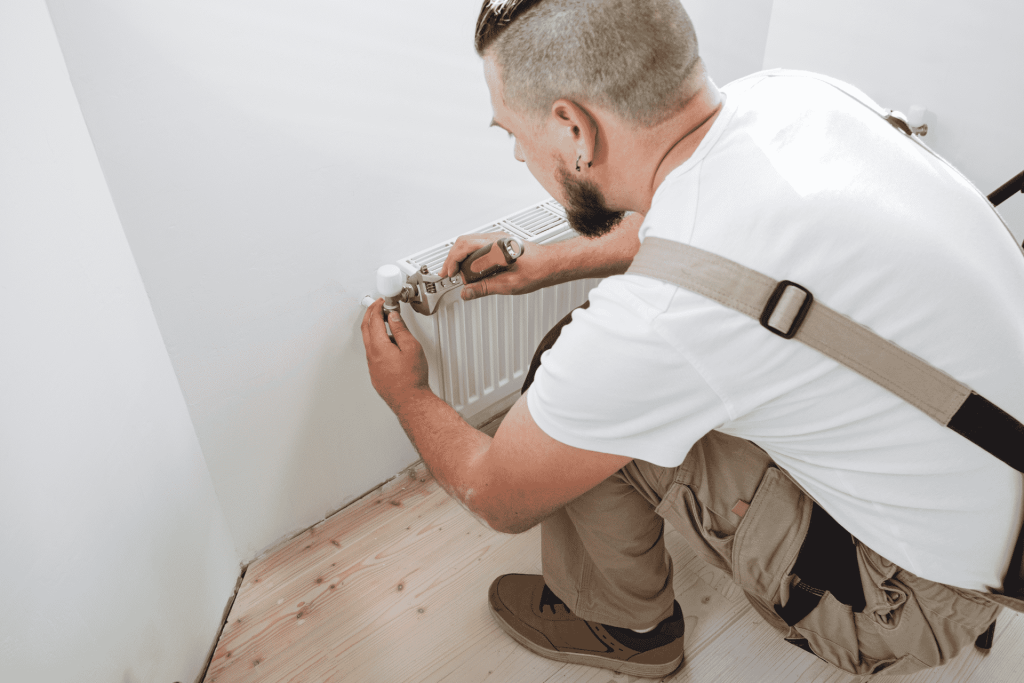Selling a house that requires repairs doesn't just test your patience; it can also open up the potential to maximize your return and streamline the sales process. In this guide by Doctor Homes, we'll explore the practical options available to you. From traditional listings to the process of selling a house for cash, understanding your choices can make all the difference. So, take a deep breath, and let's explore your options together—your path to a successful sale begins now!
Understanding the Market for Homes Needing Repairs
In the real estate world, a "fixer-upper house sale" refers to properties that require more than a bit of touch-up paint; they need substantial repairs or updates. These homes, often characterized by their lower market value compared to move-in ready homes, attract a distinct segment of buyers. Those interested in fixer-uppers are typically looking for:
• A Lower Purchase Price: Often more affordable than move-in ready homes, fixer-uppers appeal to budget-conscious buyers or investors.
• Customization Potential: Buyers can tailor these homes to their preferences or invest in renovations for a potential profit.
While move-in ready homes command higher prices due to their convenience, understanding the fixer-upper market can help sellers of distressed properties make informed, strategic decisions. This knowledge is crucial for navigating the emotional and financial complexities of selling a home that requires significant work.
Options for Selling a House That Needs Repairs
Selling As-Is
Selling a house "as-is" means offering it in its current condition, without committing to any repairs. This approach is appealing because it simplifies the process and can speed up the sale, particularly attractive to investors and buyers ready to renovate.
To prepare for an as-is sale, consider these steps to ensure transparency and attract serious buyers:
1. Honesty is the Best Policy: Provide potential buyers with upfront disclosures about the property’s condition—surprises are fun, but not when it comes to home repairs.
2. A Little Effort Goes a Long Way: A basic clean-up can make the property more appealing and help buyers envision its potential, even if you're not polishing every corner.
Selling to Cash Buyers
Selling to cash buyers like Doctor Homes can transform the way you sell your property. Cash buyers are individuals or entities that purchase homes directly with cash, bypassing the traditional financing routes. This method of selling offers significant advantages:
• Speed: Cash sales can close much faster than conventional sales, often within days, allowing you to bypass lengthy loan approval processes.
• Simplicity: The process is straightforward, with fewer steps and less paperwork, reducing stress and complexity.
Choosing Doctor Homes as your cash buyer eliminates common selling hurdles, offering a rapid and smooth transaction. This approach is especially beneficial for sellers looking to quickly resolve financial burdens or those eager to move on from their current property without the typical fuss.
Selling to Real Estate Investor Buyers
When it comes to selling a fixer-upper, real estate investors and house flippers can be your ace in the hole. These buyers are in the business of turning the proverbial ugly duckling into a swan—they buy homes that need a bit of love, fix them up, and sell them for a profit. Here’s how they fit into the puzzle:
• Market Role: Investors act as middlemen in the property market, often taking on homes that might scare away traditional buyers due to the level of repairs needed.
• Assessment Savvy: They have an eagle eye for valuation, calculating the potential after-repair value of a property to ensure it’s a worthwhile investment.
Evaluating Home Repair Cost Estimation
Figuring out the repair costs for your home doesn't have to be like solving a Rubik's Cube. Before you dive into renovations or list your house, it’s crucial to get a grip on what those fixes might cost and how they could affect your sale price. Here’s how to nail down those numbers:
• Cost Estimation Tools: Tap into online calculators or software designed for home renovation cost estimates. These resources are like having a contractor in your back pocket, minus the overalls.
• Get Professional Quotes: Don’t just wing it—get actual quotes from local contractors. This will give you a more accurate picture of what you’re dealing with.
• Cost vs. Price Analysis: Compare the estimated repair costs against the potential increase in your home’s sale price. It’s like checking if the juice is worth the squeeze—will those granite countertops turn enough of a profit to bother?
According to the article "Repair Expenses, Selling Contracts and House Prices" from the Journal of Real Estate Research, most homes are brought to a "normally maintained" state upon sale, with repair expenses typically included in the selling price. This inclusion suggests that understanding repair costs is essential, as these are usually factored into the transaction price, highlighting the importance of precise cost estimation in your selling strategy.

Preparing Your Home for Sale
Getting a fixer-upper ready for the market involves more than just a sign in the yard. It's about making the property appealing to potential buyers with a few strategic steps:
• Basic Clean-Up: Start with a thorough cleaning to remove clutter and dirt. A clean home feels more inviting and easier to envision as a future residence.
• Minor Repairs: Address simple fixes like tightening loose handles, patching holes, and ensuring light fixtures work. These minor repairs can significantly boost the home's appeal without major investment.
• Effective Staging: Staging is crucial in showcasing the best aspects of your home. Arrange furniture to maximize space and highlight key features like large windows or a fireplace. This helps buyers imagine living in the space, increasing its perceived value.
Marketing Strategies for Selling a Distressed Property
When selling a distressed property, it’s crucial to play to the right crowd. Targeting cash buyers and investors can transform a slow sale into a speedy success. Here’s how to catch their eye:
• Pinpoint Marketing: Use online platforms that cater specifically to investors and cash buyers. These venues are hotspots for those who see the sparkle beneath the surface of a fixer-upper.
• Direct Messaging: Craft your listings to speak directly to the investor mindset. Highlight potential ROI, the property's inherent value, and the economic sense behind the investment.
• Visibility Boost: Consider leveraging social media ads and real estate investment forums to broaden your reach. The more eyes on your property, the quicker you’ll find the right buyer.
Legal and Financial Considerations
Navigating the legal and financial aspects of selling a distressed property is crucial to ensure a smooth transaction and to protect yourself from potential liabilities. Here's what you need to keep in mind:
• Disclosures: Full transparency is key. You must disclose all known issues with the property, as required by law. This protects you from future legal claims and builds trust with buyers.
• Legal Requirements: Familiarize yourself with local real estate laws regarding the sale of properties needing repairs. Compliance is non-negotiable.
• Financial Implications: Consider the tax implications of selling your property. Depending on your situation, there may be potential tax benefits or obligations.
• Tax Considerations: Selling a property at a loss can sometimes provide tax advantages. Consult with a tax professional to understand how your sale might impact your financial situation.
Conclusion: Streamlining the Sale of Your Fixer-Upper
Selling a house that needs repairs doesn't have to be a renovation reality show. We've walked through a variety of strategies to help you find the right path:
• Know Your Buyers: Whether it’s selling as-is, to cash buyers like Doctor Homes, or real estate investors, each option has its merits.
• Estimate Costs Wisely: Understanding potential repair costs versus the increase in sale price is crucial.
• Legal Eagles: Keep up with legal disclosures and financial implications to avoid any aftershocks.
So, take a moment to assess your situation. When it comes to selling a house that needs repairs, the right strategy can make all the difference. Whether you choose the fast track with a cash sale or decide to invest in a few upgrades, there’s always a path forward. Remember, every home—even those with a few cracks and quirks—has a buyer out there. It’s just about finding the approach that works best for you.
FAQs about Selling a House That Needs Repairs
What is an as-is home sale?
An as-is home sale involves selling the property in its current condition, with the seller making no commitments to conduct repairs or improvements. This means the buyer accepts the property, warts, and all, and is responsible for any issues that may arise after purchase.
How do cash buyers differ from traditional buyers?
Cash buyers streamline the home-selling process by providing immediate payment, thus bypassing the often lengthy and uncertain mortgage approval processes. This can significantly speed up the closing process, making cash buyers particularly attractive to sellers in need of quick transactions.
What are the pros and cons of selling to a real estate investor?
The advantages of selling to a real estate investor include a quick sale and the avoidance of the time and expense involved in making repairs, which can be ideal for sellers looking for convenience. However, the drawbacks often include receiving a lower offer than the market value, as investors aim to cover their investment risk and the costs of future repairs.
How can I estimate the cost of repairs needed for my home?
Estimating the cost of necessary repairs for your home can be done by using online repair cost calculators, obtaining quotes from several contractors, or hiring a professional inspector who can provide a comprehensive assessment of what repairs are needed and how much they are likely to cost.
What should I disclose to buyers when selling a home that needs repairs?
It is crucial to disclose all known defects and necessary repairs when selling a home that requires work. Transparency about the property's condition can prevent future legal complications and helps ensure that buyers are fully informed about what they are purchasing.




